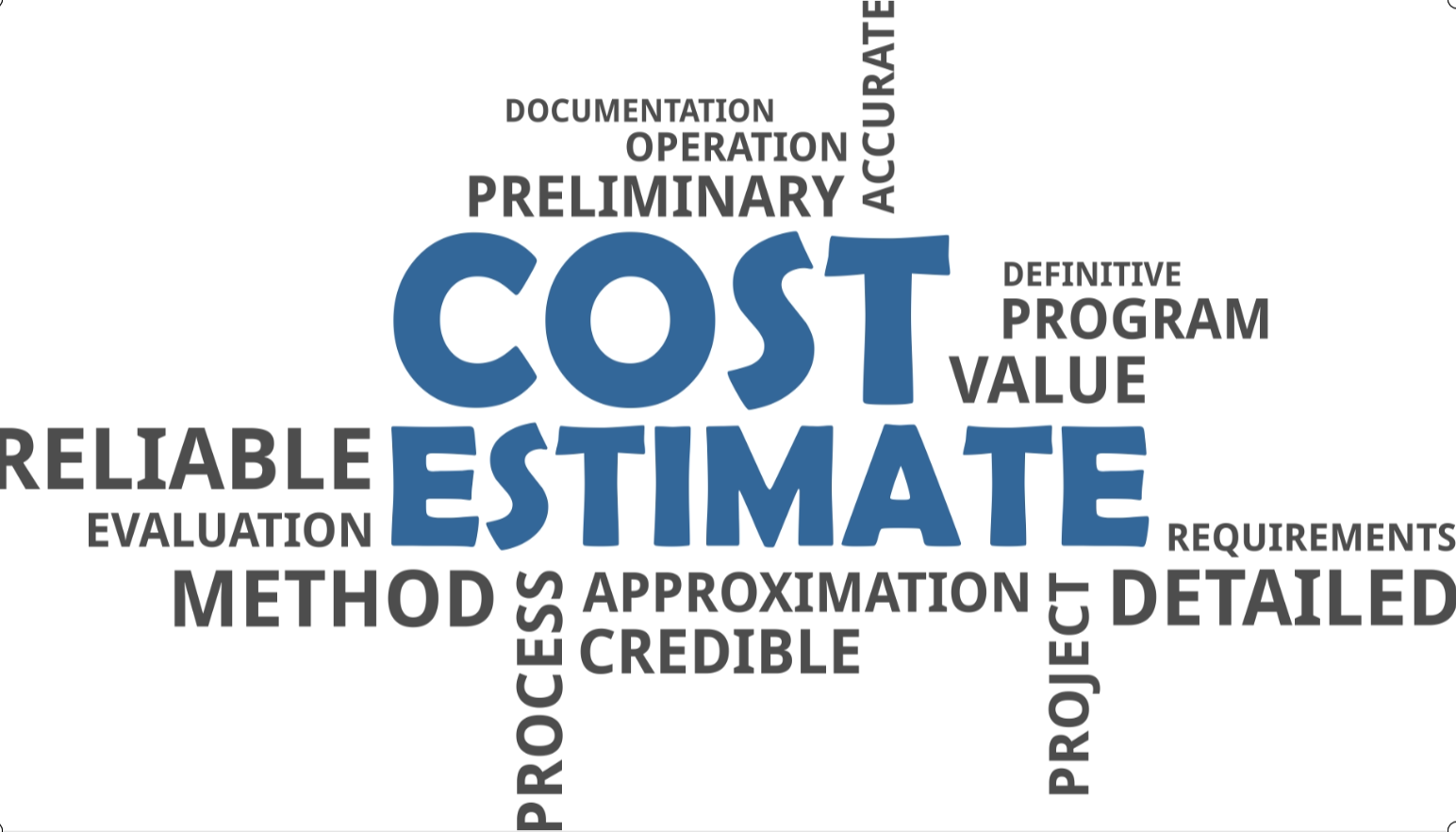
by John McCarthy Consulting Ltd. | Mar 22, 2021 | Blog, News
Recent feedback from professional accountancy body inspections which readers may find useful, has come to our attention. In no particular sequence, this selection of findings applies mainly to small/medium practices:
- Systems of internal controls – there is only a basic understanding on the file – a more complete understanding (with flow diagrams) could be used properly to help reduce sample sizes and cut down on unnecessary audit work.
- Work in progress – the evidence on the audit file of long term work in progress valuations and estimation of profit allocations, can be improved by auditors attending close out meetings as observers alongside senior client personnel when they are negotiating with third party contractors and/or quantity surveyors.
- Recoverability of debtors – not well supported by evidence on the file. The auditor does not display sufficient scepticism (and seek sufficient, independent, corroborative evidence e.g. latest audited accounts of the debtor) and seems to believe, with little questioning, whatever they are told by management about debtor recoverability.
- Net Realisable Value of some stock lines is verified but other material stock lines are ignored with no explanation given for the lack of consistent approach.
- Valuation of investments/properties – no evidence on the audit file that the impact of Covid has been considered. The file could be improved if there was evidence of the auditor speaking with the valuation expert , even to establish a proper understanding of the basis of valuation.
- Letters of representation – over reliance on these letters to close the gap in audit evidence that is apparent elsewhere on the audit file. For example with letters of support there needs to be sufficient, appropriate audit evidence on the audit file that the third party providing the support is ‘good’ for it i.e. a parent company audited accounts showing their solvency or perhaps the support is provided by a significantly wealthy related party Director, for which there ought to be an up to date statement of their personal financial affairs on the file, ideally prepared by an independent financial adviser.
- Fraud – only a cursory consideration given to this area by accepting management assertions too easily. Audit files need to contain evidence of considering the possibility of Government Covid supports being abused in some circumstances and the related possibility of fraudulent accounting to cover up the abuse.
- Going concern/subsequent events – budgets/forecasts not well evidenced on the file for up to 12 months from the date of approval of the financial statements.
- Identification of related parties – not fully documented on file.
- Long association – Responsible Individual in office longer than 10 years – ‘expect challenge’ to scepticism. Need to evidence hot file or second partner review of independence and any other contentious areas of the file, in line with Section 3 of the Auditor Code of Ethics. . Note that the current Ethical Standard for Auditors (Ireland) will be replaced with effect from 15 July 2021.
At www.jmcc.ie we have recently refreshed most of our letters or engagement templates and added some new ones which may be viewed at this link.

by John McCarthy Consulting Ltd. | Mar 1, 2021 | Blog, News
The title of the first session which I am presenting for the Cork Society Topical Practice Issues Event on Thursday 11 March is ‘Don’t Panic in a Pandemic’. The event is online from 9.30am until 12.30pm.
My session (9.30am to 11am) will cover two topics:
- Three new audit standards especially relevant for Covid-19 audits
ISA 540 Audit Estimates – getting the documentation right
ISA 570 Going Concern – challenging management’s numbers
ISA 700 Audit Reports – new style audit reports
- Anti-Money Laundering in the Pandemic – latest developments and traps.
The other speakers at the event are:
Brendan Twohig, MK Brazil on Revenue Audits & Interventions – 2021 ‘hot topics looking at the details required from Revenue in relation to Audits from a practical and advisory manner.
Neil Hughes, Baker Tilly – Managing your Practice in a Pandemic – Neil will look at the Practice Management side of things such as profitability and new ways of working. He will also look at some of the new practices of work that evolved during the pandemic and what might be worth keeping as we come out the other side of it.
More details and bookings – visit this link.
At www.jmcc.ie we have recently refreshed most of our letters of engagement templates and added some new ones which may be viewed at this link.

by John McCarthy Consulting Ltd. | Dec 3, 2020 | Blog, News
Following our last two blogs on estimates and going concern in recent weeks about the latest audit standards effective for 31 December 2020 audits, this week we look at the new style audit report.
Changes to ISA 700 as a result of the Going Concern Standard
As we pointed out last week ISA 570 triggers a new wording for the audit report.
Here is a sample of the text to be used regarding going concern, using a ‘positive’ rather than the ‘negative’ style wording used heretofore. The ‘negative style’ wording was in use for accounting periods commencing before 15 December 2019. This new ‘positive style’ wording is applicable for audit reports for periods commencing on/after 15 December 2019:
Conclusions relating to going concern
We have nothing to report in respect of the following matters in relation to which the ISAs (Ireland) require us to report to you where:
- the directors’ use of the going concern basis of accounting in the preparation of the financial statements is not appropriate: or
- the directors have not disclosed in the financial statements any identified material uncertainties that may cast significant doubt about the entity’s ability to continue to adopt the going concern basis of accounting for a period of at least twelve months from the date when the financial statements are authorised for issue.’
You will need to check that your accounting software suppliers have updated the relevant text for accounting periods commencing on/or after 15 December 2019 which in practical terms means audits for periods ending 31 December 2020.
The new template audit reports were published by the IAASA in October 2020 (which appear on their website) and incorporate the changes to the going concern standard. They now refer to going concern using ‘positive’ rather than ‘negative’ language mentioned above. Beware that the template audit reports published by the IAASA, do not include the ‘Bannerman’ paragraph. See the audit report sample wording for the Bannerman paragraph below.
Two new Technical Alerts are due shortly from Chartered Accountants Ireland, and expect new audit programmes in the early part of 2021, dealing with the changes in ISA 570 and 540. Check with your usual supplier for more details.
‘The purpose of our audit work and to whom we owe our responsibilities
Our report is made solely to the Company’s members, as a body, in accordance with section 391 of the Companies Act 2014. Our audit work has been undertaken so that we might state to the Company’s members those matters we are required to state to them in an auditor’s report and for no other purpose. To the fullest extent permitted by law, we do not accept or assume responsibility to anyone other than the Company and the Company’s members, as a body, for our audit work, for this report, or for the opinions we have formed’.
For a complete list of our time-saving engagement letter templates for FRS 102 audit, FRS 102 audit-exempt, VAT, visit our store here. All our engagement and representation letter templates are up to date for Brexit and Covid-19.
Want to catch up on your CPD before the end of 2020 see our suite of webinars here

by John McCarthy Consulting Ltd. | Nov 27, 2020 | Blog, News
Following our blog last week about the three new audit standards effective for 31 December 2020 audits, this week we look at the new going concern standard which triggers a new style audit report. Since this standard was revised in October 2019, there is a new added layer of complexity i.e. the uncertainty surrounding the ultimate outcome of the Coronavirus (COVID-19) pandemic and its financial consequences.
Changes in ISA 570 Going Concern
There will be plenty of additional documentation required of management and the auditor, including 29 requirements for auditors versus 23 in the previous standard.
The auditor will be required to:
- ‘Challenge’ the going concern forecasts /projections prepared by management with a greater degree of robustness than heretofore. This challenge needs documentation to prove that the auditor is sufficiently sceptical.
- Evaluate management’s forecast methodology to assess the entity’s ability to continue as a going concern. The auditor will also be required to determine whether the calculations used by management is sufficiently robust and founded on reliable assumptions.
- Verify the relevance/reliability of the underlying data used by management.
- Appraise management’s future strategy for going concern and determine whether the outcome is likely to be successful or not.
- Consider whether any facts / information available since the period end would influence management’s going concern assessment.
- Obtain written representations from management regarding the feasibility of their future going concern strategy plans.
- Assess whether there is any ‘management bias’ (defined as ‘a lack of neutrality by management in the preparation of information’ paragraph 9-2) evident in their assessment of going concern, including whether judgments / decisions made by management during the assessment preparation process could indicate the presence of possible management bias.
- Carry out a ‘stand back’ assessment where the auditor must consider all the evidence obtained, including corroborative / contradictory evidence, when evaluating going concern. This evidence will form part of the auditor’s challenge to management’s assessment of going concern. There is a similar requirement in the new ISA 540 standard, as discussed in last week’s blog.
These changes trigger significant additional documentation requirements for the auditor including paragraph 26-1 which has a list of five specific matters that must be documented on the audit file, not all of which are new, but will require special attention to comply with the standard. Two new Technical Alerts are due shortly from Chartered Accountants Ireland, and expect new audit programmes in the early part of 2021, dealing with the changes in ISA 570 and 540.’
Coincidentally, in the last week the Financial Reporting Council (the UK audit regulator) issued a letter to the heads of audit firms entitled ‘FRC’s review of firms’ audit of going concern assessments’ where they quote examples of good audit practice from a sample of eleven audit reviews carried out since the Coronavirus (COVID-19) struck.
Among the examples was where the auditors’ assessment included a review of management’s evaluation of historical data from the previous financial crisis, to assist in the assessment of the economic impact of Covid on the business in the forecasts and the reasonableness of the scenarios developed. Another good example was where reverse stress testing and scenario testing were used in the assessing whether there was a material uncertainty.
Quoting from the letter ‘ICAEW guidance states that “a reverse stress test is a stress test that starts from the opposite end, with the identification of a pre-defined outcome. This might be the point at which an entity can be considered as failing, or the entity’s business model becomes unviable. Severe, but plausible, scenarios that might result in this outcome are then explored”. More on this in a future blog.
ISA 570 also triggers a new wording for the audit report. More on this next week.
The changes to ISA 570 come into effect for the audit of accounting periods commencing 15 December 2019 which, in practical terms, means audits for periods ending 31 December 2020.
For a complete list of our time-saving engagement letter templates for FRS 102 audit, FRS 102 audit-exempt, VAT, visit our store here. All our engagement and representation letter templates are up to date for Brexit and Covid-19.

by John McCarthy Consulting Ltd. | Nov 23, 2020 | Blog, News
There are important changes to three audit standards affecting 31 December 2020 audits. One of the changes will result in a new template for company reports (more on this in coming weeks) and all three standards will trigger the need to change audit programmes in line with the new requirements.
This week we will deal with the first of these changes regarding the audit of estimates. In these Covid times there are plenty of estimates that may be based on less than ideal foundations e.g. inventory obsolescence, revenue recognition on long-term contracts and impairment of long-lived assets, to name but a few. IAASA have just issued a discussion paper on the Audit of Accounting Estimates (23 November 2020) in which they give examples of good and poor practice in collecting audit evidence about estimates.
Main changes to ISA 540 Auditing Estimates and Related Disclosures
There are significant changes to this standard for the audits of accounting periods commencing on/after 15 December 2019. It has 27 requirements versus 16 in the previous standard, along with 152 paragraphs of application material versus 128 in the old standard.
The key changes are that:
- The standard enhances the “stand back” requirement for auditors to assess estimates including both corroborative and contradictory audit evidence.
- There is greater emphasis placed on the need for the auditor to display, in writing, professional scepticism about the managements’ estimates and estimation techniques.
- A more detailed assessment is required of accounting estimates that could be materially misstated. This will need corroborated with written documentation. The application material contains an extensive list of examples of estimates that are likely to arise in the preparation of financial statements.
- A greater focus is placed on the level of response by the auditor to estimation uncertainty, complexity and subjectivity when preparing accounting estimates, including the assessment of management bias.
- The auditor is expected to document the auditor’s own estimate, assess subsequent events and document a more detailed understanding of the significant matters involved which influenced management’s key judgments and decision making.
- A greater degree of audit work is expected on the audit file to show that the work underpinning the disclosure of accounting estimates in the financial statements is sufficiently robust.
- All of the above needs to be supported by detailed written representations from management.
An example of poor practice from the IAASA Discussion Paper includes over-reliance by an auditor on a spreadsheet provided by the company’s administrator to support fair value pricing calculations where financial assets were a key risk. There was insufficient evidence of the auditor performing procedures to check the accuracy and completeness of the information provided within this spreadsheet.
These changes come into effect for the audit of accounting periods commencing 15 December 2019 which in practical terms means audits for periods ending 31 December 2020. An associated Technical Alert called ‘Information and support in implementing the revised ISA 540’ has just been issued by Chartered Accountants Ireland.
For a complete list of our time-saving engagement letter templates for FRS 102 audit, FRS 102 audit-exempt, VAT, visit our store here. All our engagement and representation letter templates are up to date for Brexit and Covid-19.
Want to catch up on your CPD before the end of 2020 see our suite of webinars here.










